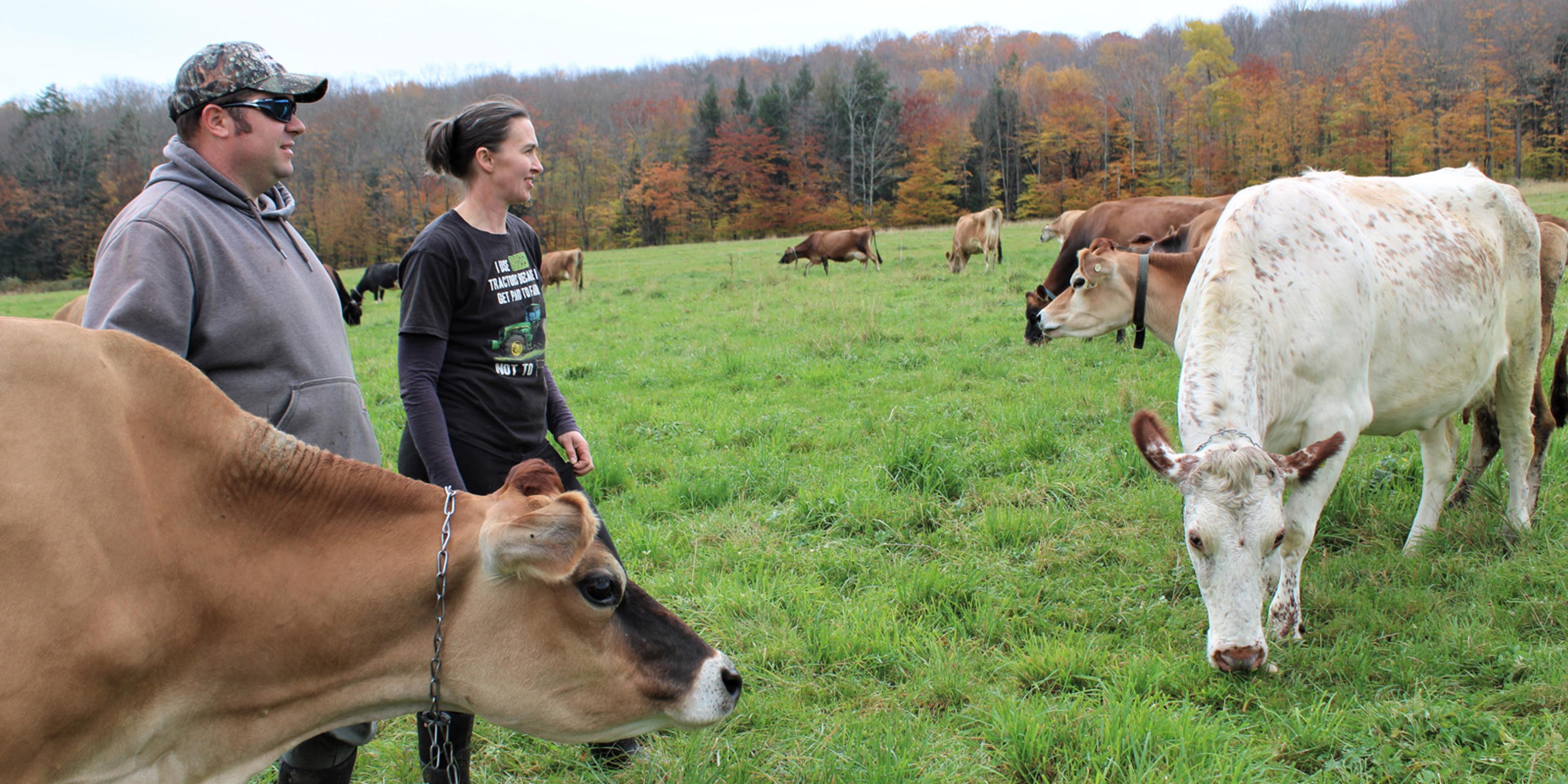
Farming
‘Kids, Coffee and Cows. That’s My Life’
You might say Sonya Roberge likes her cows. Scratch that. Sonya Roberge is obsessed with her cows.
Only on occasion in the last 10 years did the Organic Valley farmer in Vermont let somebody else milk the cows. Ask her husband, Tim, who took on the task as Sonya (who had lost her voice and was nearly incapacitated with the flu) managed to sit in the barn and tell him what to do by waving, pointing and straining out a few words in a raspy voice if necessary.
She wants to ensure the cows are cared for and the organic milk from those cows is of the highest quality.
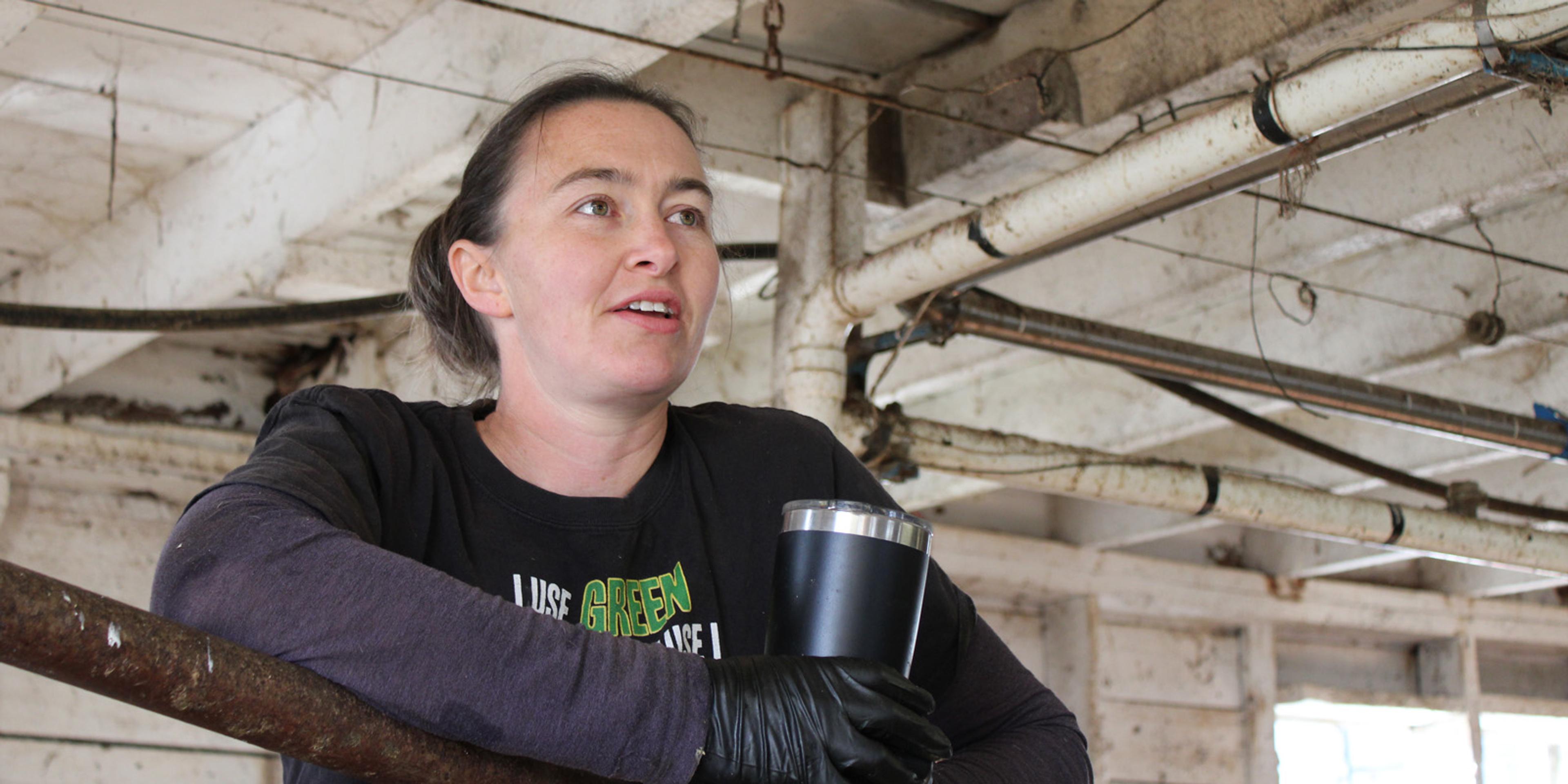
Sonya, coffee in hand, takes a break from milking.
“I love my cows as much as I love my dog,” she said. “I’m not sure what I would do without them.”
And she sure loves her dog, Jack. He is a fixture in the barn during milking time and follows the family around the farm.
The Roberges are among the newest of the more than 1,600 Organic Valley farmers who meet the high animal care, sustainability, pasture and quality standards you can expect from Organic Valley. The Roberges’ 65 cows lead a pretty darn good life.
Their Oughta-Be Farm sits on 250 acres at the end of a dead end road. Rolling hills are the backdrop for luminous sunrises.
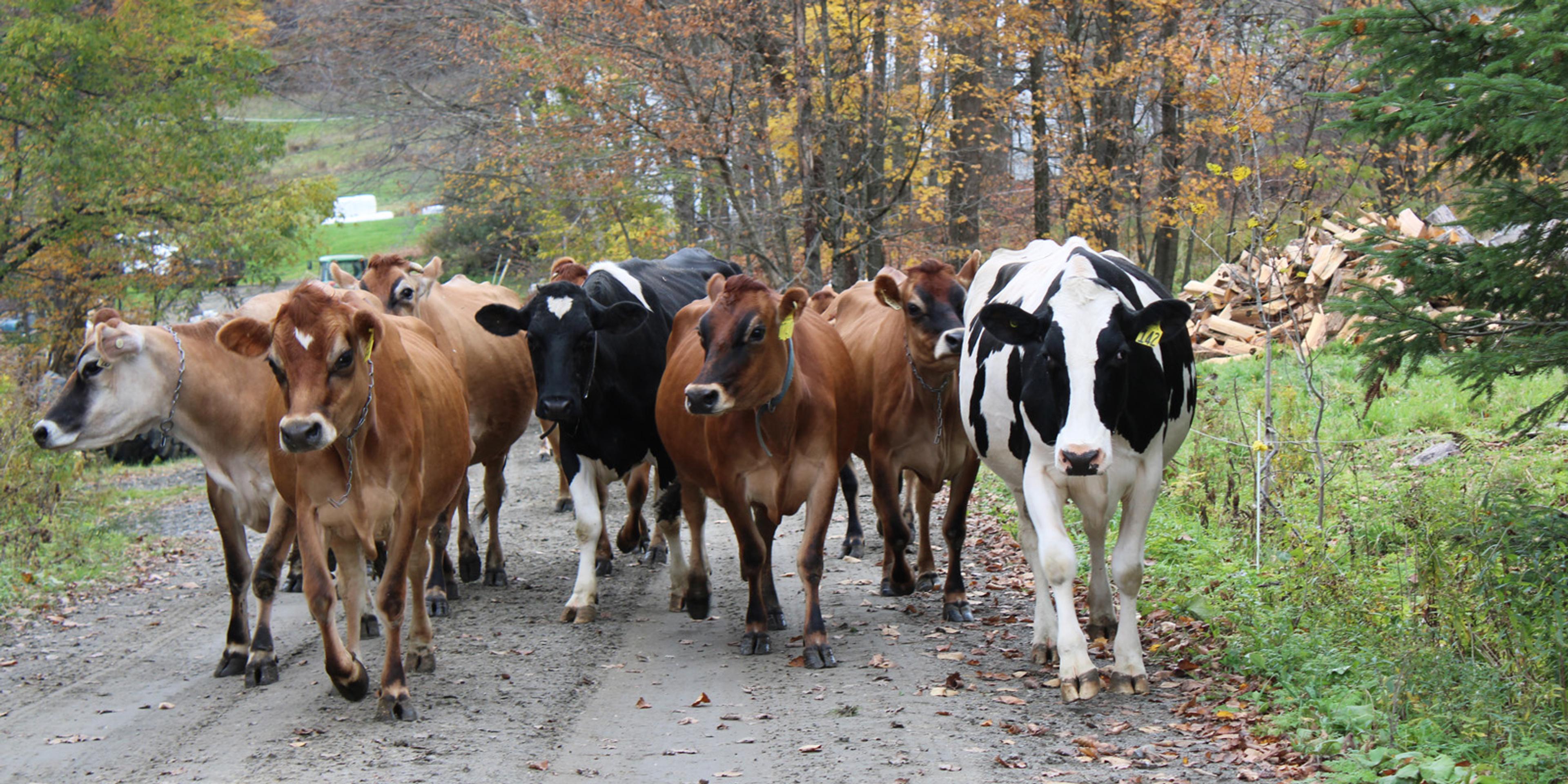
Cows head up the lane to pasture at Oughta-Be Farm in Vermont.
Their 12-year-old twin boys help on the farm. They know how to milk and care for the cows. James is a farm kid who looks like Tim. John, who looks like Mom, is more interested in technology — though he helps with chores.
“Kids, coffee and cows. That’s my life,” Sonya said while gripping a coffee mug between milking cows.
Too Stubborn to Transition
The family transitioned the farm to organic in 2006. “What the organic industry is doing is the natural way. It just makes sense,” Sonya said.
The family wanted a simpler way of life, she added.
“We should have done it years ago, but I was too stubborn. I figured we couldn’t farm without fertilizers or antibiotics. Now the cows are better because we farm organically.”
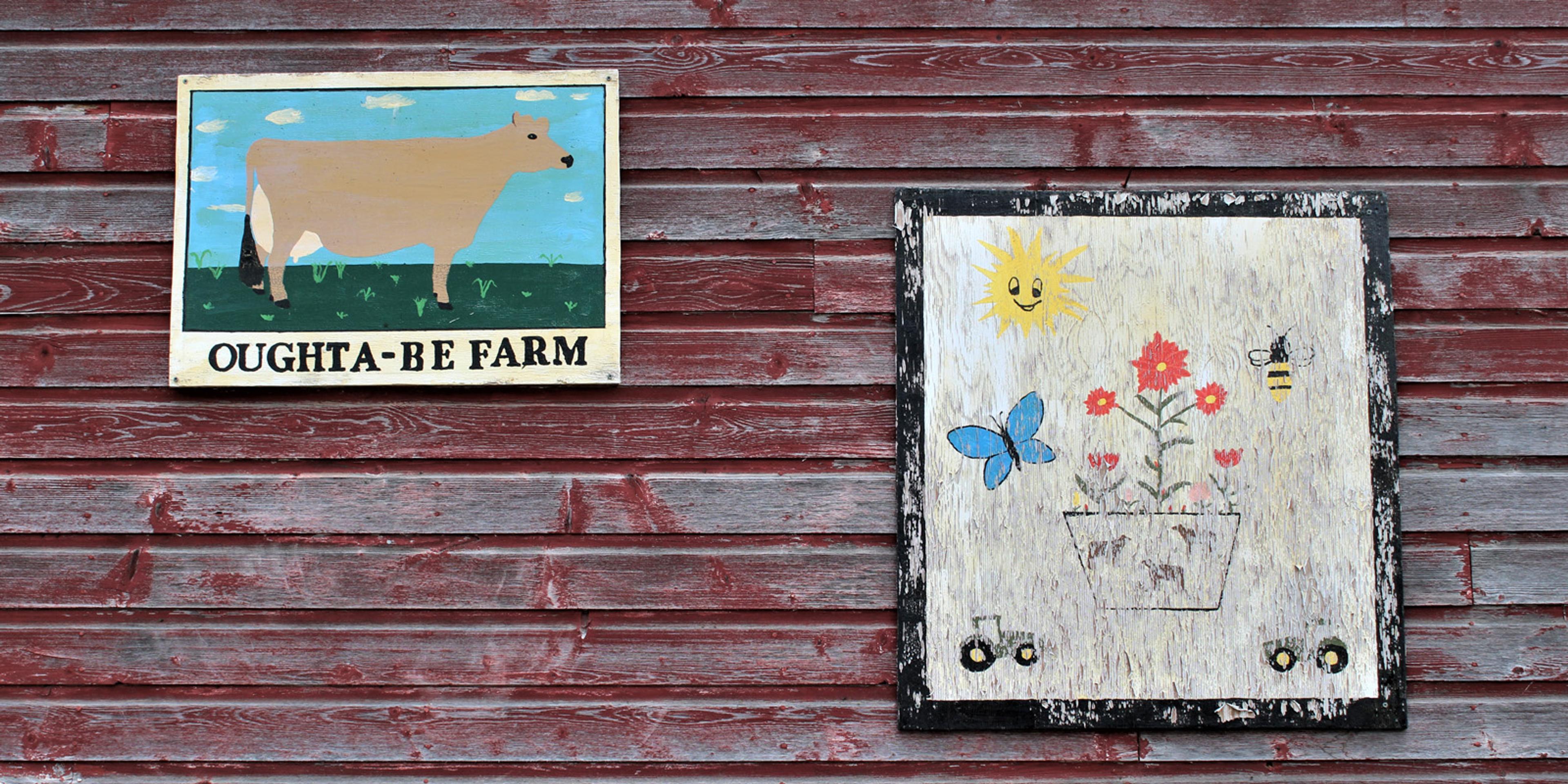
Decor on the barn at Oughta-Be Farm.
The Farm's History and Name
The name Oughta-Be Farm was inspired by the phrase “it ought to be …” that Sonya’s great-uncle used liberally. He passed away when she was a girl.
“He is my hero. The reason I keep going is because of him, though I only knew him for seven years,” she said. “When I want to throw in the towel and sell the cows, I think of him — not only would I let me down, I wouldn’t want to let him down.”
That great-uncle along with Sonya’s great-aunt and grandfather founded the farm. Her parents later ran the farm. And then it was Sonya and Tim’s turn.
Oughta-Be Farm is much more than kids, coffee and cows. Tim laughs as he says, “I realize they are priority and I am bottom of the barrel.” Of course, he is not.
Tim went to school for ag mechanics. “He’s the mechanic and I’m the cow person,” said Sonya, who has an associate’s degree in dairy farm management. Tim has a vital role in the cows’ lives too. Cows need to eat and, well, poop.
“I take care of what comes out the back and what goes in the front for the most part,” Tim says as he talks about feeding and cleaning up after the herd.
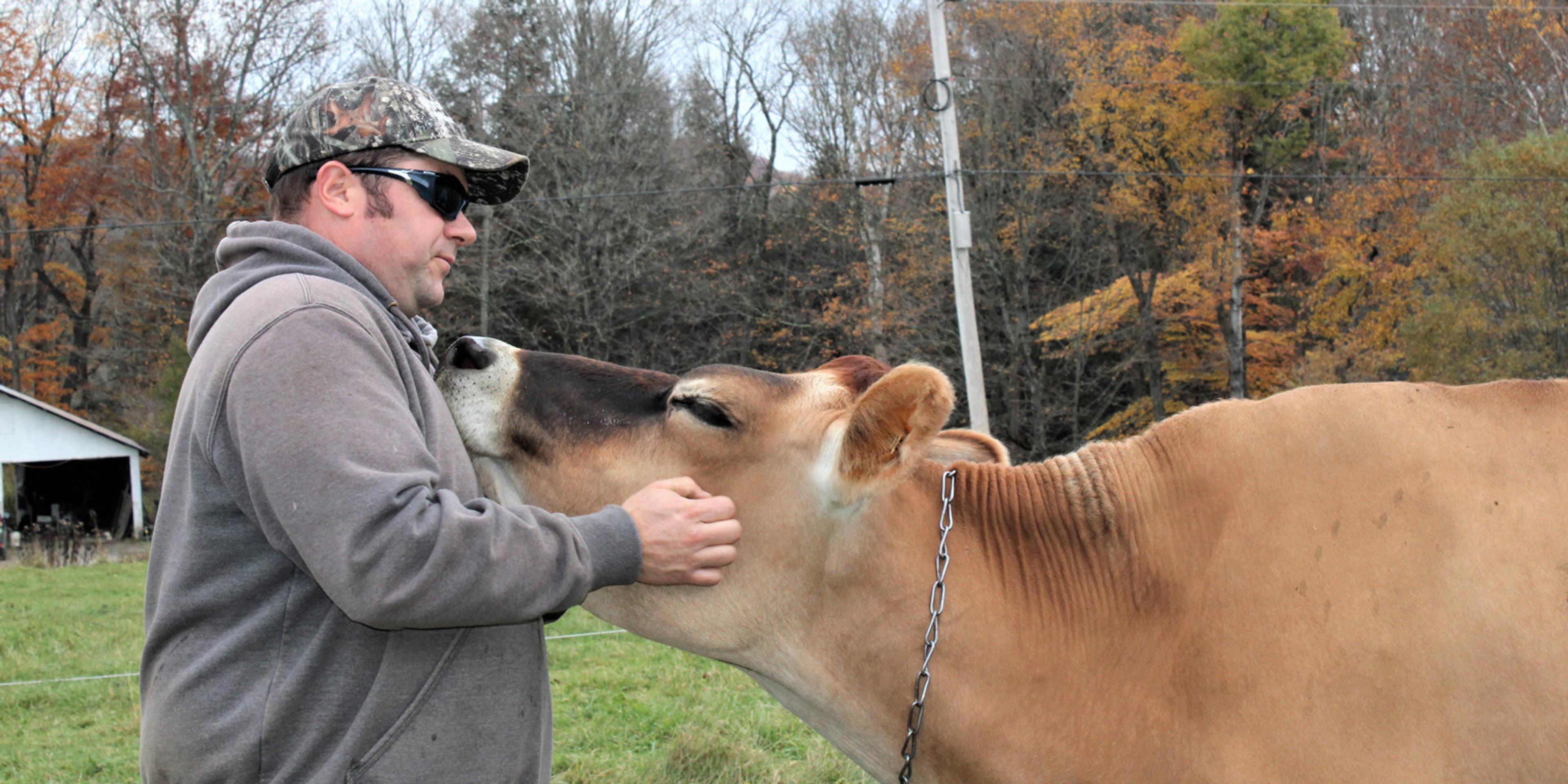
A cow enjoys a nice rub from Tim.
The Roberges work hand in hand every day. They move fences so cows have fresh greens on pasture, steward the land, care for their boys, take on the business side of things and provide each other with laughter and encouragement. They love farming but admit some days it is tough. When the alarm goes off at 4 a.m. they are out of bed, ready to take on the day no matter the circumstances.
In the past 10 to 15 years they’ve watched a dozen area families walk away from farming, but they do not intend to let that happen. Without consumers like you purchasing Organic Valley products, the Roberges would have to consider a different lifestyle.
“If I didn’t have support from consumers my dream is gone, and my kids’ dream could be gone,” Sonya said.
Sonya has farmed in that peaceful area of Vermont all of her life, and she and Tim are invested, hardworking and resilient. “When you farm, sometimes things go downhill but then you go back up the other side,” she said with a smile.
An antique typewriter fanatic and chicken mom who treasures time outdoors admiring all that nature has to offer, Jennifer McBride is Rootstock’s editor. McBride spent 15-plus years as a journalist and newspaper editor before finding her niche with the nation’s leading organic dairy cooperative. Contact her at Rootstock@organicvalley.com.
Related Articles
- Tags:
- farm life,
- organic & sustainable living,
- farmer voices,
- family & kids,
- children


















